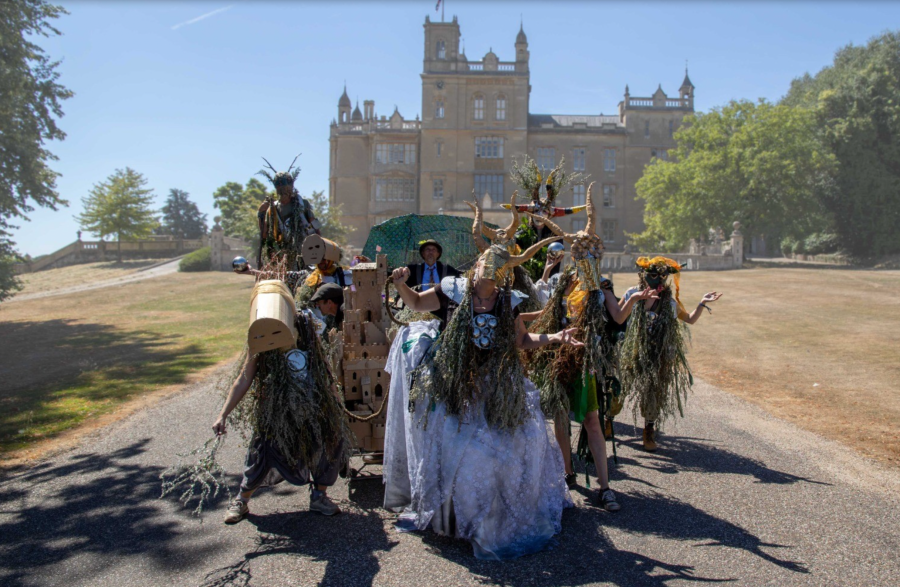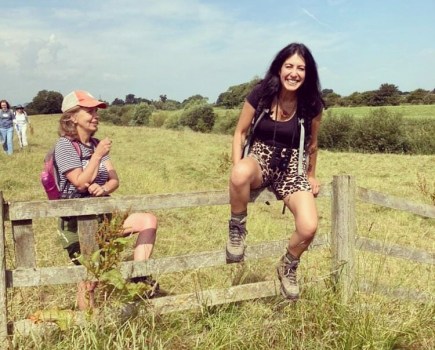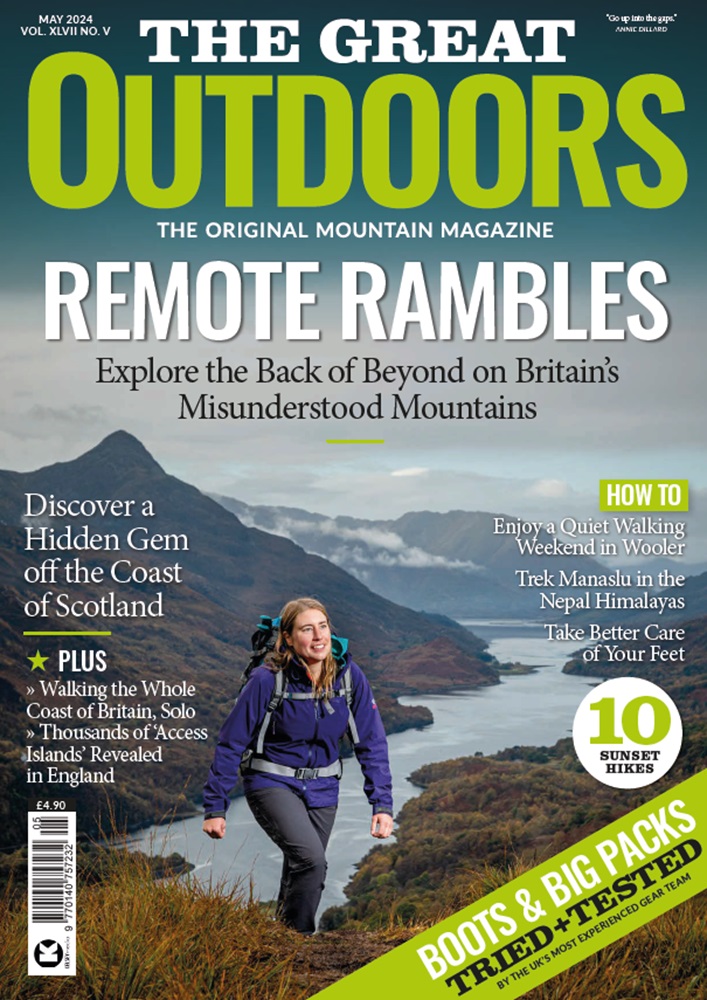As the government admits there’s been no progress on the promise of green or blue space 15 minutes from all homes, but announces plans for a new national park, Jon Moses paints the bigger picture.
We’ve all been there. Your popularity is rock bottom. Everything you touch turns to shit. Your pal calls round, invites you out to take your mind off it all. “Take this,” they say, handing you a small roll of paper, which suspiciously resembles a civil service memorandum, “it’ll make you feel better.” You feel a strange, rushing sensation. Trees start to look two-dimensional. “Access reform”, you think. “I’ve got it!”. Bold, visionary ideas race through your cortex, like salmon chasing eels. Then you awake. Temples throbbing. A notebook full of meaningless scribbles and bad poetry. And a press conference you announced at 3am going live in the next ten minutes.
Main image: The Englefield Trespass | Credit: JAAK LONDON
I imagine this was the scene when, last January, Thérèse Coffey announced the government’s long awaited proposals for access reform. “Everyone will live no more than a 15 minute walk from a green space or water,” she declared, dreams of terra-forming half of Birmingham still reverberating inside her mind. Mic drop. Stage exit. No more details provided.
Smelling a rat, Right to Roam FOI’d the government to find out more. Could we have any briefings, submissions or statistics informing DEFRA’s thinking? Any assessments provided to ministers for how their access target could actually be met?
We got our answer. “No assessment has yet gone to ministers on options for how to progress towards the commitment”. The sum total of two years of purported work amounted to three sides of A4 with a few cobbled statistics and some fag-packet mathematics. It confirmed ministers had pushed back on any idea of a legal target (government gets awkward when you actually have to mark your homework). They branded it a “commitment” instead. Which politicians love: because nobody knows what it means.
The memos contained a further clue as to why DEFRA seemed to be nowhere on access: they were all addressed to Lord Benyon. The latest scion of a dynastic family of West Berkshire landowners who have held political office for much of the past two hundred years, Benyon was, until recently, the unelected Minister for Access to Nature (DEFRA likes recruiting unelected landowners so much it has just done it again). In one sense he was well qualified for the role: his own access to nature is exceptional.
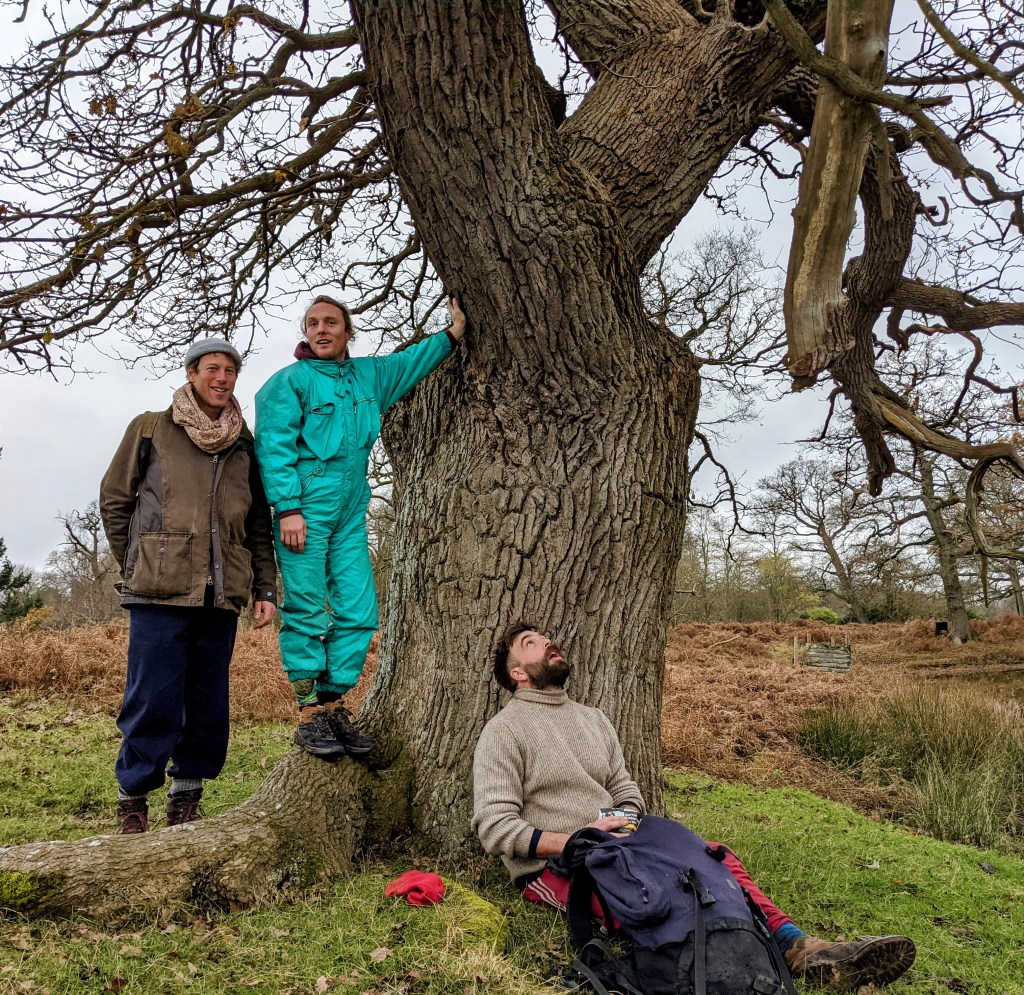
Reccying the Englefield Trespass. Credit: Jon Moses
Benyon lives in an Elizabethan mansion on the Englefield Estate, which consists of 14,000 acres of countryside – including a rather pleasant deer park, created in the 19th century by moving the nearby village out of the way (it spoiled the view). Victorian newspapers recount with great excitement the special occasions when local residents would be permitted entry to the grounds for a day, before being kicked out again for another year.
Perhaps that benevolent legacy was on Richard’s mind when, in the House of Lords, he reflected on his “experience of providing public open space. In my case much closer to a large urban centre and I understand how people want to access the countryside.” Which was an interesting contribution to make while defending the decision to reintroduce the 2026 cut off for recording 49,000 miles of lost rights of way. What did he mean? Well, there are two permissive paths on the Englefield Estate. These permit you to wander up his lengthy tarmac drive, peer at the great house in the distance before being sent on your way back to the A340.
Such benevolence is not exactly gratis. Instead it falls under HMRC’s Conditional Exemption Scheme, which means that if you’ve got loads of expensive stuff you can get inheritance tax relief for theoretically providing public access to it: like to an artwork, or a modest track somewhere on the edge of your vast estate. Of course, being permissive, such provision is liable to be withdrawn at any moment. When Right to Roam led a “trespass” of Englefield last summer, accompanied by a troupe of morris dancers dressed as psychedelic owls, Richard was quick to point such magnanimous arrangements out.
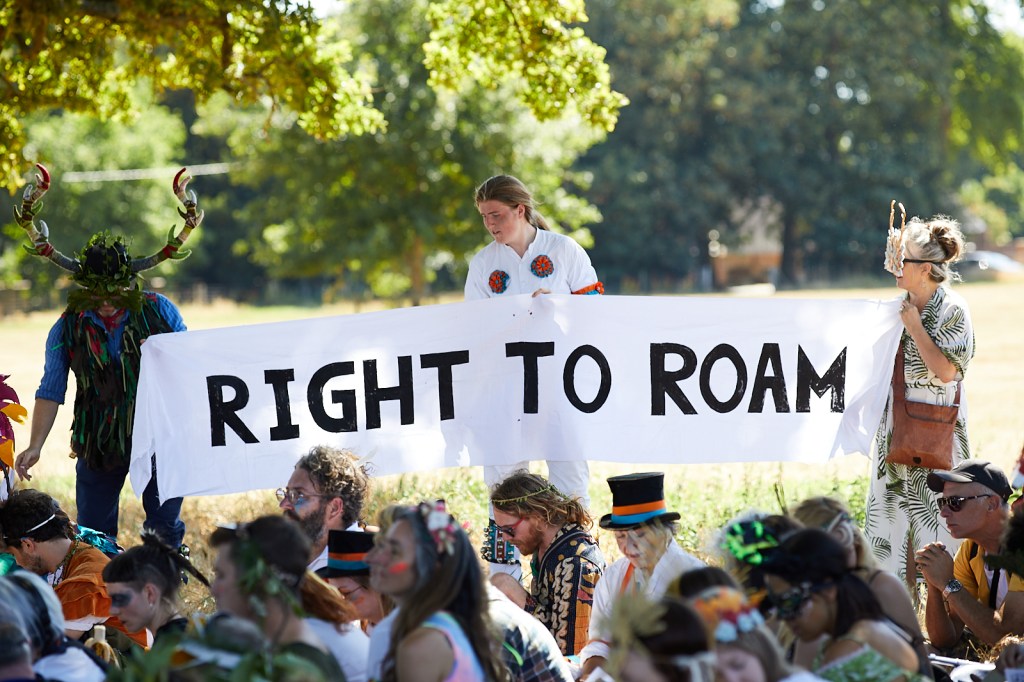
The Dance of the Commons. Credit: JAAK LONDON
Not to be cowed by Coffey’s departure, the government has just announced another raft of non-proposals, including notional handouts of taxpayer money to landowners in exchange for access to some woodlands. They also declared they were “searching for a new national park”. Why? Have they lost one?
We should not waste our time with blatant diversions – such as a new national park – and focus on reasserting some fundamental truths instead. No one should have to ask permission for the simple act of existing in their environment. Access to nature should not be at the behest of some Lord. We should not have to fear someone shouting at us for swimming in our river, or being turfed from our sleep while taking a night under the stars. Enough chipping away at the patrician ideology which still holds the land in its thrall. We have been a democracy for over one hundred years now – it’s time for our access laws to reflect that basic fact too.
Jon Moses is a writer and campaigner with Right to Roam.
Read more: Why are our national parks failing to protect nature?

